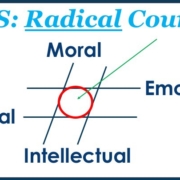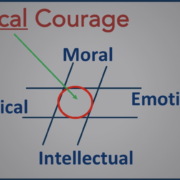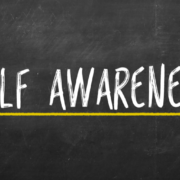AI is Getting Dumber. How You Can Avoid Cognitive Drift.
According to the Wall Street Journal, AI platform ChatGPT 4 has significantly higher errors in basic math and other subjects than its predecessor, 3.5. What’s going on?
Algorithmic drift is one of the primary culprits. AI learns from inputs, so it is subject to the garbage-in, garbage-out phenomenon. The more garbage enters the system, the more the chatbot’s accuracy drifts.
Algorithmic drift can also result from manipulation, where people seek to sabotage the Chatbot by feeding it lousy information or coaxing it to say something outrageous or offensive.
Artificial life is not all that far from real life when it comes to cognitive drift. We, too, drift when we privilege information that confirms our beliefs (confirmation bias) and super-empower those who speak it. Cognitive drift is part of the reason leaders can get worse even as they have more experience on the job. Russia’s Vladimir Putin is a high-profile example.
You avoid cognitive drift when you gain diverse inputs, resist sycophancy, and breathe fresh air. Here are some action steps to do so.
- Promote cognitive diversity in your inner circle. Just because someone looks different from you does not mean they think differently. You need people around you who are committed to your success and see issues from different angles. My PROM Archetypes® assessment helps you do so.
- Seek out differing perspectives. I read the New York Times, Wall Street Journal, and Washington Post because I know that each has a unique point of view, and I can normally triangulate them to come up with a reasonable degree of ground truth. You put cognitive drift into overdrive when you only read, watch, or listen to news and ideas from a single perspective..
- Increase your company’s psychological confidence. Psychological confidence occurs when leaders encourage disagreement, and employees are comfortable disagreeing agreeably. People with psychological confidence will identify problems, offer fresh ideas, and take risks to advance the common good. If everything is always awesome in your Legoland, you should brace for impact.
I can help you assess your company’s psychological confidence using a questionnaire. Here’s the general version that I customize for organizations.
- Get an outside perspective. Bring on a trusted advisor who 1) wants what’s best for you, 2) builds your capacity, and 3) tells you the truth. Your typical certificate-waving coaches fall short on 2 and 3; they usually just help you inhale your own gas.
It’s hard to see the label from inside the jar, and even your most objective subordinates will have difficulty telling you what you need to hear. A trusted advisor will save you time, improve your decisions, and increase your peace of mind.
If you would like to explore ways a trusted advisor can support you, schedule a call.










